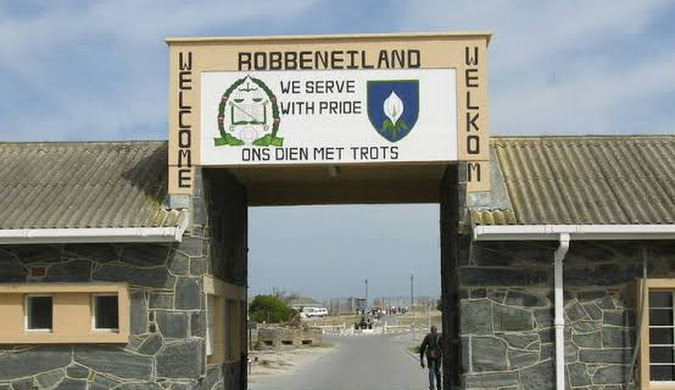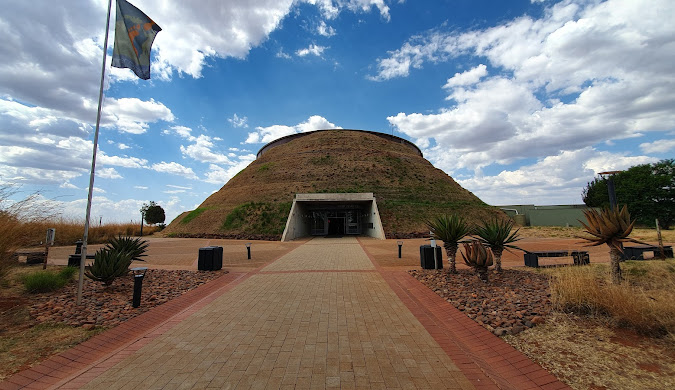News and Events
The Thabo Mbeki Letters, Part 7: Health and Wellness
Of all the fundamental responsibilities of government and leadership, a good healthcare system is considered one of the most vital. Sadly, however, it has remained one of the most underappreciated, even by leaders who are expected to prioritize it. The decline in government interest in providing quality healthcare often stems from the belief that issues of personal health are private and should not be made the government’s responsibility. While there is a measure of truth to this assumption, it is fallacious to overlook the importance of community health, especially when interpersonal communication and relationships often create the atmosphere for the spread of contagious or infectious diseases.
South Africa’s situation is unique in some ways. Too many people have been weakened by the political infrastructures that treat their welfare as a secondary concern, and they have also lost the economic means to afford quality medical intervention when faced with health-related challenges. This, therefore, puts significant pressure on emerging leaders, particularly in the post-independence era, to find effective ways to redeem the people’s lost medical vibrancy. Incidentally, this responsibility falls on the leaders of the African National Congress (ANC), who, having risen to the political limelight, should naturally take on the responsibility of providing access to the best medical services to their people.

Thabo Mbeki understands the art of governance and places a high premium on reputation management. He recognizes that to destroy the image of a people, all it takes is the amplification of unfounded narratives by individuals with provincial objectives. Such narratives can quickly re-engineer the people’s image and undermine their integrity. For instance, the widespread assumption that South Africans are highly affected by medical issues like HIV and AIDS has created harmful stereotypes about the people, which need to be addressed accordingly. Additionally, many South African citizens have become victims of untimely death, and the negative assumptions surrounding the cause of their demise have dominated media platforms, further generating wrong perceptions of the people.
Mbeki notes that the first step to remedy this is to ascertain the causes of these deaths so that appropriate interventions can be made. He maintains that the lack of knowledge about the medical disasters costing people their lives could become another potential problem that could hinder the nation’s progress. It goes without saying that the government of the day, headed by past ANC leaders and Mbeki himself, must make bold decisions to alleviate the people’s fears about the dangers of rapidly spreading ailments. The effort to uncover the root causes of these health crises is evidence of their commitment to addressing the country’s medical challenges.
Mbeki, though not a medical professional, fully understands how best to initiate medical ideas to confront the burgeoning medical challenges. He is a leader who understands that the most effective way to improve public health is for the leaders to provide the necessary medical infrastructure and create a conducive and disease-free environment for the people. Poverty alleviation plays a crucial role in this fight because economic hardship often makes people engage in actions that lead to health challenges. In other words, as people develop stronger economic potential, they are better equipped to avoid health risks through conscious and preventative activities.

Cradle of Humankind in South Africa
Therefore, Mbeki prioritizes the implementation of the right policies to protect the people from becoming victims of circumstances. His government made courageous decisions and took bold steps to ensure this. Such undertaking requires a leader who is stubborn and uncompromising in the discharge of their responsibilities. It is important to note that prior to Mbeki’s leadership, many South Africans have been victims of medical challenges caused by their lack of access to economic and financial opportunities. It is, therefore, understandable that they wanted to change such horrendous history. However, beyond poverty alleviation programs and projects, the government must manage its available resources frugally and moderately. This is underscored by the knowledge that many areas require significant financial investment, and unless the available meager resources are managed carefully, the government would not be able to effectively contain the medical crises that may arise. Notably, cutting costs should begin with having a moderate budget for political officeholders. The luxury enjoyed by those in power must be curtailed, not only because there are insufficient funds to run these activities but also because the nation has urgent medical challenges that must be attended to.

For the masses to have access to critical infrastructure and beneficial projects, Mbeki’s government made bold efforts to redirect resources for the people’s benefit. This strategic redistribution of financial resources significantly contributed to improving the country’s medical conditions. While monetary assistance was sometimes rendered to the people, the provision of basic amenities such as water, nutrition, housing and electricity, health services, and sanitation also consolidated their efforts. Mbeki argues that once these are achieved, they will ultimately lead to the resolution of people’s medical problems.
Also, this altruistic leader notes that the fight against poverty and the medical challenges ravaging the country was not without its attendant challenges for the ANC leadership. For instance, individuals with different intentions made efforts to sabotage their commitment by spreading incorrect information and sending misleading signals to the public. Mbeki notes how, on one occasion, his leadership was questioned by foreign agencies that accused him of mismanaging the allocated financial resources. This accusation by the agencies was meant to generate controversy and provoke the public to react against the leadership of the ANC. Unfortunately, such a media war is difficult to fight because people who are not privy to genuine information would only react or comment based on what they have access to.
Nevertheless, Mbeki clarifies that the disbursement of the allocated resources was carried out as intended and that its delay was caused by a process that needed to be followed. He emphasizes that if they had not followed such a logical process, the purpose for which the program was created would have been eventually defeated. Against all odds, Mbeki continued to pursue the policies that he believed would emancipate his people from the shackles of ideological suppression imposed and maintained by the West. The external onslaught of African political leadership has been the root of various challenges that persist even after the postcolonial experience. Mbeki recognizes the efforts of the West to paint negative images of anything and everything African. The West generates wrong and unfounded assumptions about Africa, which are then spread across Western media just so that they can further their agenda on the continent.

Cradle of Humankind in South Africa
In addition, while not downplaying the negative consequences and impact of HIV-AIDS in South Africa, Mbeki argues that the country’s medical challenges stem primarily from the lack of economic opportunities and financial power of the people, particularly the black majority. To effectively combat these issues, the leadership needed to reconsider their economic strategies and implement ideas that would geometrically improve the conditions of the black community so that they could become more active and involved in the nation’s progress. At the same time, they had to counter the erroneous information being spread about them. Mbeki insists that while eradicating poverty was necessary, it should not be done at the detriment of the people’s health, especially in the worrying case of HIV/AIDS. He worked tirelessly to correct the people’s wrong perception of his leadership while making critical efforts to restore their integrity.
This is a 12-part series based on the collections edited by Sifiso Mxolisi Ndlovu, titled ANC Today Letters: The Ideas and Thoughts of President Thabo Mbeki, Volume 1, 2001-2004, supplemented by materials in the Thabo Mbeki Museum, UNISA, Pretoria. The series is composed over five weeks in three different countries. The museum’s resources, digitized under 27 categories, can generate over 200 books.
For the original article, visit: The Thabo Mbeki Letters – Part 7: Health and Wellness
Publish date: 2024-09-08 00:00:00.0


 Unisa explores strategic education collaboration in the North West Province
Unisa explores strategic education collaboration in the North West Province
 Orange Day against GBVF: A community stands united
Orange Day against GBVF: A community stands united
 Unisa, EC industry leaders discuss collaboration to enhance catalytic niche areas
Unisa, EC industry leaders discuss collaboration to enhance catalytic niche areas
 Black industrialist and founding CEO of Capebio to deliver keynote address at Innovation Festival
Black industrialist and founding CEO of Capebio to deliver keynote address at Innovation Festival
 Unisa connects with Giyani community to define tomorrow
Unisa connects with Giyani community to define tomorrow